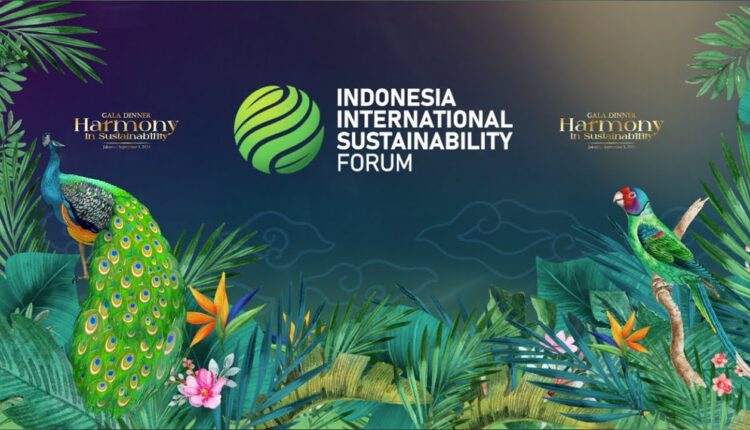ISF 2024 Success Gives Birth to Inclusive Policies to Address Climate Change
By: Deka Prawira)*
The International Sustainability Forum (ISF) 2024 has recorded extraordinary achievements in the global effort to combat climate change. Taking place involving countries from various parts of the world, this forum has succeeded in producing inclusive policies that are able to answer the biggest challenge of this century, namely how to create a more sustainable world by involving all levels of society and sectors.
One of the key elements of the success of ISF 2024 is the focus on inclusive policies. The issue of climate change is no longer discussed only as an environmental issue, but as a multidimensional problem that affects social, economic and health aspects.
Therefore, this forum emphasizes the importance of a holistic approach, in which voices from various sectors, including marginalized communities and vulnerable groups, are accommodated in policy formulation.
Indonesian President Joko Widodo (Jokowi) emphasized the importance of increasing collaboration between developed and developing countries to address the increasingly threatening problem of climate change.
According to him, this problem will never be resolved as long as the world still uses an economic approach, as long as the world only calculates its own profits and as long as the world only cares about its own egotism.
Likewise, Coordinating Minister for Maritime Affairs and Investment Luhut Binsar Pandjaitan also reminded how important collaboration is to overcome climate change. According to him, ISF 2024 is a forum for the world to collaborate in climate action.
ISF 2024 is an international collaboration platform that aims to work together to innovate to protect the environment. Not only that, but the event can also empower communities through knowledge transfer so that it becomes an inclusive sustainability forum for all levels of society.
Then, during the Gala Dinner, the Vice President of the Republic of Indonesia (Wapres RI), KH Ma’ruf Amin, revealed that Indonesia has a high commitment to play an active role in realizing sustainable development.
Some of the steps are through strengthening international cooperation through strategic partnerships and multilateral initiatives. He continues to invite world leaders to jointly optimize international cooperation in the field of green technology.
ISF 2024 also serves as a stage for the birth of innovative initiatives that bring together advanced technology with policies that support sustainability. Many countries and large companies are introducing renewable energy programs, clean technology, and green innovations that are expected to significantly reduce carbon footprints.
But more than just technology, what is at the heart of this forum is a commitment to ensuring that any policies produced are inclusive and leave no one behind.
The forum also emphasized the importance of global cooperation. Climate change is a cross-border problem that cannot be solved by one country alone. Collaboration between countries, as well as between governments and the private sector, is an important foundation for building effective policies.
Several developing countries, which are often the biggest victims of climate change despite their relatively small carbon emissions, are given greater space to voice their aspirations and needs. This reflects the global awareness that fair climate policies must take into account the historical gap and differences in economic capacity between developed and developing countries.
Furthermore, ISF 2024 emphasizes the importance of real action, not just promises and political statements. Commitments to implementing green policies through concrete steps have been adopted by various countries.
One concrete example is the policy of shifting from fossil fuels to renewable energy that has been agreed upon by several major countries. They have promised to significantly reduce their dependence on fossil fuels in the coming decade, while providing financial and technical assistance to developing countries that want to follow suit.
However, the biggest challenge remains in the implementation of these policies. Often, there is a wide gap between policy formulation and implementation. Therefore, ISF 2024 also encourages transparency and accountability in reporting on climate policy progress.
Participating countries and companies are asked to regularly report on the progress of the pledges they have made, so that efforts to combat climate change can be monitored globally.
The success of ISF 2024 in producing this inclusive policy provides new hope that efforts to combat climate change can be carried out with a fair and sustainable approach.
By engaging a wide range of stakeholders, and recognizing the important role of vulnerable groups and developing countries, the forum demonstrated that global solutions need not be exclusive. Instead, inclusivity is key to ensuring that all parties contribute to and benefit from the shift towards a greener future.
Ultimately, the policies born at ISF 2024 are not just a reaction to the climate crisis, but a proactive step towards a more equitable world. It is proof that through inclusive cooperation and strong commitment, the threat of climate change can be faced more effectively and sustainably.
)* The author is a contributor to Pertiwi Institute
